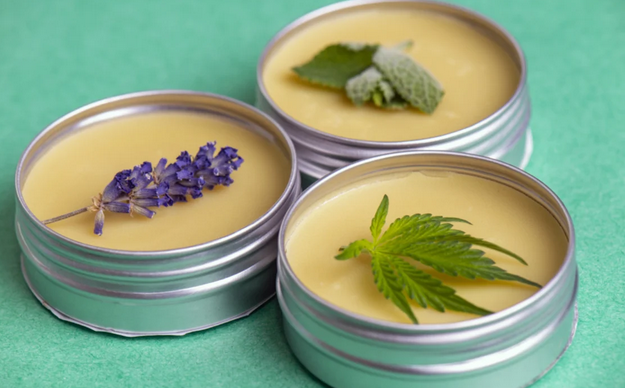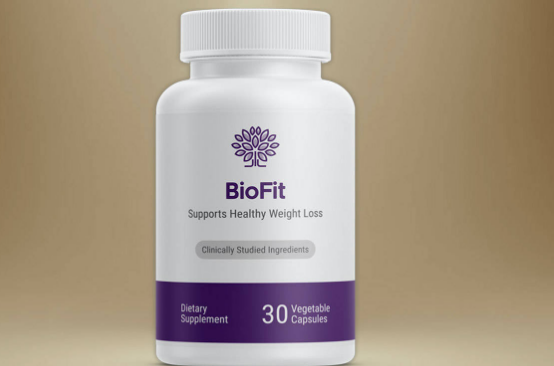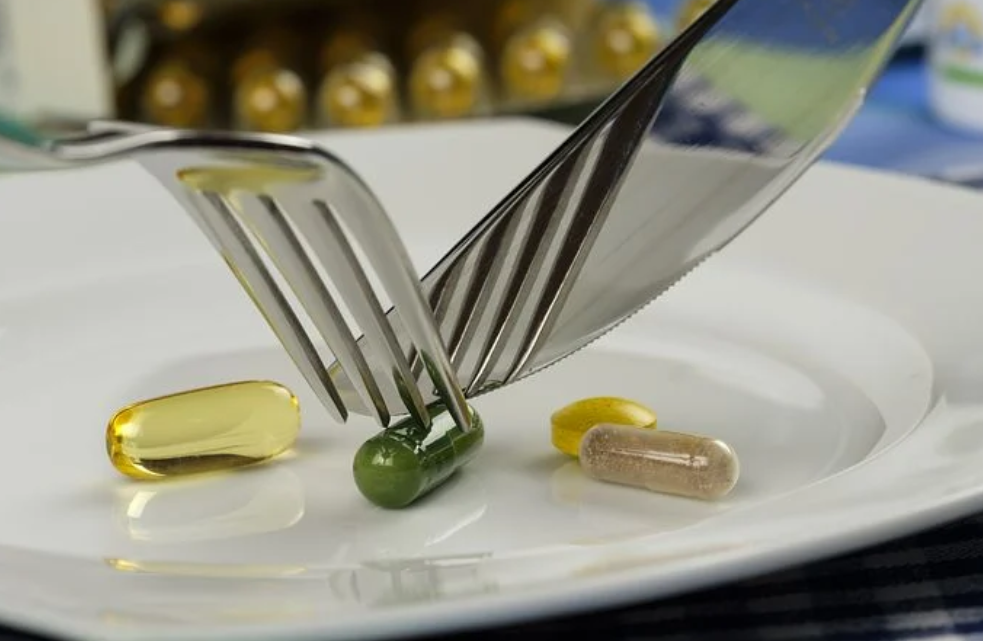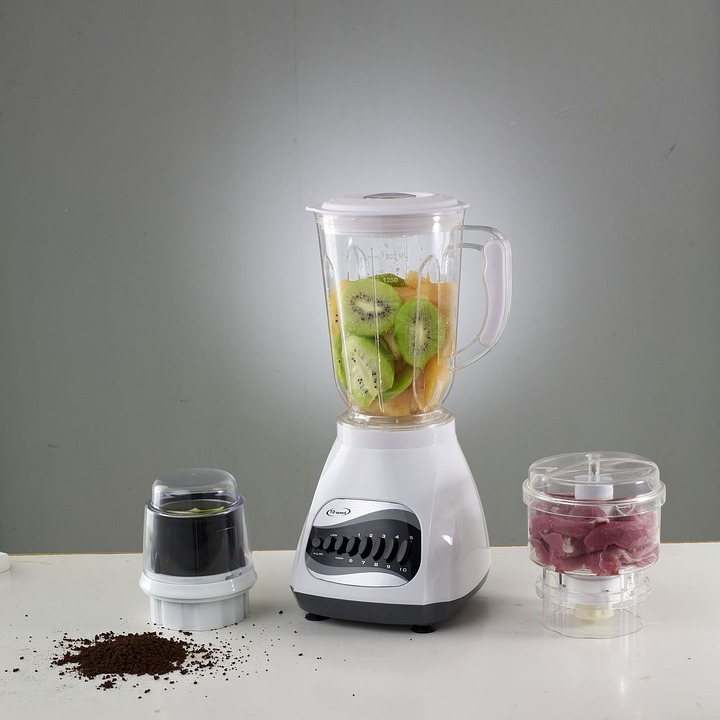The Subtle Signs of Stress You Can Spot in Your Smile
Your smile can reveal more than just happiness; it can also show signs of hidden stress. Grinding teeth, jaw tension, and gum inflammation are subtle indicators that emotional strain might be affecting your oral health. Visiting a trusted dental practice Wilmslow can help you identify these early warning signs and prevent long-term damage. Dentists can recommend treatments and lifestyle adjustments to ease tension and protect your teeth. By paying attention to these small changes, you can maintain a healthy smile while also taking better care of your overall well-being.
Teeth Grinding and Jaw Clenching

One of the most common signs of stress is teeth grinding, also known as bruxism. Many people grind their teeth subconsciously, often while asleep or during moments of intense concentration. Over time, this habit wears down enamel, causes tooth sensitivity, and leads to jaw pain or headaches. You may notice small chips in your teeth or soreness around your jaw when you wake up. Stress triggers muscle tension, and your jaw muscles are no exception. If left unaddressed, constant clenching can also cause temporomandibular joint discomfort, making chewing or talking painful and tiring.
Gum Inflammation and Bleeding
Stress can weaken your immune system, making your body more vulnerable to inflammation and infection. This includes your gums, which may become swollen, tender, or prone to bleeding when brushing or flossing. Elevated stress levels increase the production of cortisol, a hormone that interferes with the body’s ability to fight bacteria effectively. As a result, plaque builds up faster, and gum irritation becomes more common. Regular dental hygiene and mindful stress management can reduce inflammation and prevent the early stages of gum disease from developing into more severe conditions.
Dry Mouth and Bad Breath

A dry mouth is another subtle indicator of stress. High stress levels can reduce saliva production, leaving your mouth feeling unusually dry. Saliva plays an important role in neutralizing acids and washing away food particles, so when it decreases, bacteria thrive. This imbalance often leads to bad breath and a higher risk of cavities. Many people mistake this problem for poor hygiene, but it may actually stem from emotional strain or medication related to stress. Staying hydrated and chewing sugar-free gum can help stimulate saliva flow while you work on reducing tension.
Canker Sores and Mouth Irritations
Canker sores are small but painful ulcers that can appear inside the mouth during times of high stress. Although their exact cause is not fully understood, they are often linked to a weakened immune response and hormonal changes. Stress can trigger these outbreaks or slow down healing, making eating and speaking uncomfortable. Paying attention to when these sores appear can help you identify stress patterns and triggers. Maintaining a balanced diet, getting enough rest, and using soothing mouth rinses can ease discomfort and help the mouth recover more quickly.
How Stress Impacts Dental Habits
 Stress not only affects your body; it also changes your behavior. People under pressure may skip brushing, floss less often, or eat sugary comfort foods, all of which contribute to dental issues. Even mild stress can disrupt healthy routines and lead to neglect over time. Recognizing these shifts in habits is key to preventing long-term damage. Taking small steps, such as setting reminders to brush or practicing deep breathing before bed, can help you stay consistent with your oral care, even during challenging periods.
Stress not only affects your body; it also changes your behavior. People under pressure may skip brushing, floss less often, or eat sugary comfort foods, all of which contribute to dental issues. Even mild stress can disrupt healthy routines and lead to neglect over time. Recognizing these shifts in habits is key to preventing long-term damage. Taking small steps, such as setting reminders to brush or practicing deep breathing before bed, can help you stay consistent with your oral care, even during challenging periods.
Your mouth acts as a reflection of your mental well-being. From jaw tension to gum irritation, these subtle signs remind us that stress affects the body as a whole. Paying attention to your oral health can help you detect early warning signs before they turn into major dental problems. Combining good hygiene with stress-relief habits such as exercise, meditation, or restful sleep can make a noticeable difference. A calm mind leads to a brighter, healthier smile, and caring for both is one of the best ways to protect your overall health.…













 What you eat has a direct impact on the health of your lungs. A diet rich in fruits and vegetables is always a good idea. Still, some specific foods can help support respiratory health. For example, ginger has anti-inflammatory properties help soothe sore throats and ease congestion. Garlic is another excellent option as it contains natural antibiotics that can help fight off respiratory infections. In general, you want to avoid foods high in fat and sugar as they can contribute to weight gain and worsen respiratory problems like asthma and COPD.
What you eat has a direct impact on the health of your lungs. A diet rich in fruits and vegetables is always a good idea. Still, some specific foods can help support respiratory health. For example, ginger has anti-inflammatory properties help soothe sore throats and ease congestion. Garlic is another excellent option as it contains natural antibiotics that can help fight off respiratory infections. In general, you want to avoid foods high in fat and sugar as they can contribute to weight gain and worsen respiratory problems like asthma and COPD.
 Air pollution is a major problem in many cities around the world. But, even if you don’t live in an urban area, you’re still exposed to air pollution daily. Things like car exhaust and cigarette smoke can contribute to poor air quality and worsen respiratory problems. You can avoid air pollution by staying indoors on days when the air quality is poor. You should also keep your windows closed and use an air purifier in your home. But ultimately, you need to go back to nature once in a while and refresh your lungs.
Air pollution is a major problem in many cities around the world. But, even if you don’t live in an urban area, you’re still exposed to air pollution daily. Things like car exhaust and cigarette smoke can contribute to poor air quality and worsen respiratory problems. You can avoid air pollution by staying indoors on days when the air quality is poor. You should also keep your windows closed and use an air purifier in your home. But ultimately, you need to go back to nature once in a while and refresh your lungs.
 The first step to taking care of your Invisalign is to clean your trays properly. You should start by rinsing your trays with warm water and gently brushing them with soft soap. Make sure you do not use abrasive cleaners as they can damage the material of your trays. Once you have brushed them gently with the soap, rinse them with warm water and dry them with a soft cloth. Though simple, this process will help remove any plaque or bacteria that may have built up on your trays during the day.
The first step to taking care of your Invisalign is to clean your trays properly. You should start by rinsing your trays with warm water and gently brushing them with soft soap. Make sure you do not use abrasive cleaners as they can damage the material of your trays. Once you have brushed them gently with the soap, rinse them with warm water and dry them with a soft cloth. Though simple, this process will help remove any plaque or bacteria that may have built up on your trays during the day. Many users think that since Invisalign is removable, they can eat and drink whatever they want while wearing them. However, this is not the case, as certain foods and drinks can damage your trays. For instance, drinking coffee or tea can cause staining on your trays, while eating sticky or hard foods can crack or break them. Therefore, avoiding eating or drinking anything while you have your Invisalign, except for water, is best.
Many users think that since Invisalign is removable, they can eat and drink whatever they want while wearing them. However, this is not the case, as certain foods and drinks can damage your trays. For instance, drinking coffee or tea can cause staining on your trays, while eating sticky or hard foods can crack or break them. Therefore, avoiding eating or drinking anything while you have your Invisalign, except for water, is best. Last but not least, one of the most essential tips for taking care of your Invisalign is to visit your orthodontist regularly. It is because they will be able to check your treatment progress and ensure that everything is going according to plan. Additionally, they will be able to answer any questions or concerns you may have about your Invisalign. Not only that, but they can also give you tips on adequately taking care of your Invisalign to achieve the best results possible.
Last but not least, one of the most essential tips for taking care of your Invisalign is to visit your orthodontist regularly. It is because they will be able to check your treatment progress and ensure that everything is going according to plan. Additionally, they will be able to answer any questions or concerns you may have about your Invisalign. Not only that, but they can also give you tips on adequately taking care of your Invisalign to achieve the best results possible.
 One of the most significant benefits of thermogenic fat burner pills is that they can help to increase your metabolism rate. Metabolism is the process by which your body burns calories, and a higher metabolism rate means that you’ll be able to burn more calories throughout the day.If you’re looking to lose weight, increasing your metabolism rate is a great way to do it. Thermogenic fat burners work by increasing your body temperature increases your metabolism rate.
One of the most significant benefits of thermogenic fat burner pills is that they can help to increase your metabolism rate. Metabolism is the process by which your body burns calories, and a higher metabolism rate means that you’ll be able to burn more calories throughout the day.If you’re looking to lose weight, increasing your metabolism rate is a great way to do it. Thermogenic fat burners work by increasing your body temperature increases your metabolism rate. Needless to say, the most noticeable benefit of thermogenic fat burners is the boost in energy levels that they provide. If you’re struggling to get through the day or feel fatigued all the time, thermogenic fat burners can help.
Needless to say, the most noticeable benefit of thermogenic fat burners is the boost in energy levels that they provide. If you’re struggling to get through the day or feel fatigued all the time, thermogenic fat burners can help.
 One of the best ways to reduce hunger and appetite is to eat enough protein. Protein helps to regulate appetite by increasing levels of satiety hormones. In addition, protein takes longer to digest than other nutrients, enabling you to feel fuller for longer. Aim to eat at least 20-30 grams of protein per meal. Good protein sources include lean meats, fish, poultry, eggs, legumes, and dairy.
One of the best ways to reduce hunger and appetite is to eat enough protein. Protein helps to regulate appetite by increasing levels of satiety hormones. In addition, protein takes longer to digest than other nutrients, enabling you to feel fuller for longer. Aim to eat at least 20-30 grams of protein per meal. Good protein sources include lean meats, fish, poultry, eggs, legumes, and dairy. When you feel hunger pangs coming on, try to reach for a filling snack instead of something sugary or empty calories. Nuts, seeds, yogurt, and fruit are great examples of snacks that can help tide you over until your next meal.
When you feel hunger pangs coming on, try to reach for a filling snack instead of something sugary or empty calories. Nuts, seeds, yogurt, and fruit are great examples of snacks that can help tide you over until your next meal.
 Our mouth is one of the most actively used body parts, and it is vital to keep it healthy. It is more important than ever to visit a dentist in Milton Keynes for a check-up during the pandemic. A dental check-up can help you identify any potential problems with your teeth and gums and get them treated before they become worse.
Our mouth is one of the most actively used body parts, and it is vital to keep it healthy. It is more important than ever to visit a dentist in Milton Keynes for a check-up during the pandemic. A dental check-up can help you identify any potential problems with your teeth and gums and get them treated before they become worse. Exercising daily for at least 45 minutes is one of the best things that you can do for your health. It is a great way to release stress, improve your mood, and boost your immune system. If you cannot go to the gym or go for a run, there are many other exercises that you can do at home.
Exercising daily for at least 45 minutes is one of the best things that you can do for your health. It is a great way to release stress, improve your mood, and boost your immune system. If you cannot go to the gym or go for a run, there are many other exercises that you can do at home.
 When you go to the dentist, two things can happen. First of all, it could be a routine appointment where all they do is clean your teeth and make sure everything is going well for them in-between visits. When this happens, it’s essential to have an experienced dental provider and an excellent bedside manner.
When you go to the dentist, two things can happen. First of all, it could be a routine appointment where all they do is clean your teeth and make sure everything is going well for them in-between visits. When this happens, it’s essential to have an experienced dental provider and an excellent bedside manner. Last but not least, you should also consider a dentist’s availability and flexibility. For example, if you work during the day or have kids who need to be taken care of, you will want someone who has evening and weekend hours. Additionally, suppose you are going out of town for an extended period.
Last but not least, you should also consider a dentist’s availability and flexibility. For example, if you work during the day or have kids who need to be taken care of, you will want someone who has evening and weekend hours. Additionally, suppose you are going out of town for an extended period.
 The success rate of your surgery depends on who is holding the knife. Interview the doctor before going under the knife. Ensure that they have all the needed certificates and licenses required to show experience. Go as far as asking for details of other patients that have had the same surgery. See what they have to say about their experience with the doctor.
The success rate of your surgery depends on who is holding the knife. Interview the doctor before going under the knife. Ensure that they have all the needed certificates and licenses required to show experience. Go as far as asking for details of other patients that have had the same surgery. See what they have to say about their experience with the doctor.
 How you extract CBD oil from the hemp plant impacts the final product’s genetic makeup. You apply high pressure to the plant to extract the oil, leading to an extract that the companies capture and sell. How you use force separates high quality from low-quality products. If you extract by heat, butane comes into contact with cannabinoids leading to a chemical reaction that alters their genetic profile.
How you extract CBD oil from the hemp plant impacts the final product’s genetic makeup. You apply high pressure to the plant to extract the oil, leading to an extract that the companies capture and sell. How you use force separates high quality from low-quality products. If you extract by heat, butane comes into contact with cannabinoids leading to a chemical reaction that alters their genetic profile.



 For many people, stress and anxiety are a problem that they have to battle with daily. The hard work that you have to undertake at the workplace can leave you exhausted. If you realize that the boredom and tension at the workplace are the amounts of stress, you need to understand that opting for CBD creams for massage can make a difference in ensuring that you relax. Research has shown that
For many people, stress and anxiety are a problem that they have to battle with daily. The hard work that you have to undertake at the workplace can leave you exhausted. If you realize that the boredom and tension at the workplace are the amounts of stress, you need to understand that opting for CBD creams for massage can make a difference in ensuring that you relax. Research has shown that 



 Functional medicine is a new health approach method that involves both patient and practitioner who work in unison to find the causes of diseases. This process is complex because the functional medicine doctor will scrutinize your health and find the possible causes of the illness. The practice involves several tests on specimens taken from samples in your body to ascertain the root cause of diseases. The healthcare provider will examine the patient’s history, lifestyle, and other underlying factors to develop plans to restore your health.
Functional medicine is a new health approach method that involves both patient and practitioner who work in unison to find the causes of diseases. This process is complex because the functional medicine doctor will scrutinize your health and find the possible causes of the illness. The practice involves several tests on specimens taken from samples in your body to ascertain the root cause of diseases. The healthcare provider will examine the patient’s history, lifestyle, and other underlying factors to develop plans to restore your health. In this form of medicine, traditional medicine is combined with alternative treatment approaches. Functional medicine acknowledges the strength of conventional medicine to treat severe illnesses. The doctors tap into all the necessary tools to manage chronic diseases. A combination of approaches and close attention to nutrition and exercise will provide you with the tools needed to attain sustainable wellness.
In this form of medicine, traditional medicine is combined with alternative treatment approaches. Functional medicine acknowledges the strength of conventional medicine to treat severe illnesses. The doctors tap into all the necessary tools to manage chronic diseases. A combination of approaches and close attention to nutrition and exercise will provide you with the tools needed to attain sustainable wellness. Unlike other conventional medicine methods, functional medicine will provide the patients with a better approach to healthcare. The professional practitioners who use the healthcare approach will incorporate exercise, lifestyle, and nutrition to improve how your organs function to prevent illness and create sustainable health for their patients.
Unlike other conventional medicine methods, functional medicine will provide the patients with a better approach to healthcare. The professional practitioners who use the healthcare approach will incorporate exercise, lifestyle, and nutrition to improve how your organs function to prevent illness and create sustainable health for their patients.



 Probiotics are often used to restore the balance of the digestive system by allowing good bacteria to thrive. They can help maintain the beneficial bacteria, which are often destroyed by antibiotics, thus preventing Candida and yeast from growing. They are also present in saliva, which effectively reduces the number of harmful bacteria that enter our digestive system and negatively affects it. As for their use in digestive disorders such as ulcerative colitis, probiotics have been studied for this. In particular, Bifidobacterium and Lactobacillus strains have been shown to improve digestive symptoms in people with mild ulcerative colonitis.
Probiotics are often used to restore the balance of the digestive system by allowing good bacteria to thrive. They can help maintain the beneficial bacteria, which are often destroyed by antibiotics, thus preventing Candida and yeast from growing. They are also present in saliva, which effectively reduces the number of harmful bacteria that enter our digestive system and negatively affects it. As for their use in digestive disorders such as ulcerative colitis, probiotics have been studied for this. In particular, Bifidobacterium and Lactobacillus strains have been shown to improve digestive symptoms in people with mild ulcerative colonitis. Don’t Just Sit There! Start Adding Probiotics to Your DietPeople who suffer from lactose intolerance can often eat yogurt with few symptoms due to the probiotics that yogurt contains. Probiotics help break down lactose and digest it in the small intestine before it reaches the large intestine and causes diarrhea. Probiotics have become quite popular in the media and health reports because of their ability to thrive on vital bacteria and yeasts. In addition to treating harmful bacteria that can cause colds and other diseases, probiotics are useful for maintaining health. Probiotics help treat gastrointestinal disorders such as colon cancer, ulcerative colitis, and Crohn’s disease, help with oral health and prevent tooth decay.…
Don’t Just Sit There! Start Adding Probiotics to Your DietPeople who suffer from lactose intolerance can often eat yogurt with few symptoms due to the probiotics that yogurt contains. Probiotics help break down lactose and digest it in the small intestine before it reaches the large intestine and causes diarrhea. Probiotics have become quite popular in the media and health reports because of their ability to thrive on vital bacteria and yeasts. In addition to treating harmful bacteria that can cause colds and other diseases, probiotics are useful for maintaining health. Probiotics help treat gastrointestinal disorders such as colon cancer, ulcerative colitis, and Crohn’s disease, help with oral health and prevent tooth decay.…




 results are satisfying. Spare some time to hit the gym every day and you’ll be amazed of your body’s response. It will help you cope and get used to hitting the gym every time. Despite our natural inclination towards relaxation, there are still good reasons to hit the gym, even when all you want to do is absolutely nothing.
results are satisfying. Spare some time to hit the gym every day and you’ll be amazed of your body’s response. It will help you cope and get used to hitting the gym every time. Despite our natural inclination towards relaxation, there are still good reasons to hit the gym, even when all you want to do is absolutely nothing. mind bounce from one worry to another. Not forgetting the unhealthy habits that cause physical issues like diabetes. Getting time to hit the gym will take away the real impetus for stress and reduce the time you have to let your mind wander. In turn, you will always find a sense of tranquility and happiness.…
mind bounce from one worry to another. Not forgetting the unhealthy habits that cause physical issues like diabetes. Getting time to hit the gym will take away the real impetus for stress and reduce the time you have to let your mind wander. In turn, you will always find a sense of tranquility and happiness.…
 You are advised to look at the previous projects that these designers have been able to complete before you hire them. If you want to hire a given company, then you should not feel shy to request for their portfolio. That said, a portfolio will help you to understand the exact years they have been offering their services and the kind of projects they have completed successfully. Based on your style, you will later make your personal choice depending on the projects that you will see on their profile.
You are advised to look at the previous projects that these designers have been able to complete before you hire them. If you want to hire a given company, then you should not feel shy to request for their portfolio. That said, a portfolio will help you to understand the exact years they have been offering their services and the kind of projects they have completed successfully. Based on your style, you will later make your personal choice depending on the projects that you will see on their profile.

 Most people who use this approach for weight loss report that it makes them feel less hungry than when not in this state. It is easier to stick to any diet when you are not fighting cravings and hunger each step. Hunger pangs can often be derail your best efforts. Not having to deal with hunger pangs makes it easier for you to meet your weight loss goals.
Most people who use this approach for weight loss report that it makes them feel less hungry than when not in this state. It is easier to stick to any diet when you are not fighting cravings and hunger each step. Hunger pangs can often be derail your best efforts. Not having to deal with hunger pangs makes it easier for you to meet your weight loss goals.

 You are better off when your skin adapts to natural products as they are more beneficial than we can imagine. First, they have no harmful effect because they are mother nature’s finest gifts to some of our unending problems such as acne. Natural products have no artificial additives and preservatives that could react negatively with your skin.
You are better off when your skin adapts to natural products as they are more beneficial than we can imagine. First, they have no harmful effect because they are mother nature’s finest gifts to some of our unending problems such as acne. Natural products have no artificial additives and preservatives that could react negatively with your skin.
 If you want to buy a mattress, there are a lot of aspects you are required to consider. You need to ensure that you have bought one that will make you comfortable. Therefore, before you make your final purchasing decision, ensure that you conduct your own personal research and know some of the information concerning these mattresses. It is important to know that there are various mattresses available in the market. Therefore, you are required to know what to consider. Before you purchase your bed, you need to determine the use first. This will actually help you to know some of the features to consider. If you do not know some of the important factors to consider before purchasing your mattresses, ensure that you try to know some of the important information concerning them.
If you want to buy a mattress, there are a lot of aspects you are required to consider. You need to ensure that you have bought one that will make you comfortable. Therefore, before you make your final purchasing decision, ensure that you conduct your own personal research and know some of the information concerning these mattresses. It is important to know that there are various mattresses available in the market. Therefore, you are required to know what to consider. Before you purchase your bed, you need to determine the use first. This will actually help you to know some of the features to consider. If you do not know some of the important factors to consider before purchasing your mattresses, ensure that you try to know some of the important information concerning them. You are recommended to consider the quality and comfort especially when it comes to shopping for a mattress. The available top latex mattresses in the market are known to offer amazing bounce comfort as compared to memory foam or innerspring mattress. If you do not know how to determine the quality of your mattress, you need to look at the type of fabric which is used to make it. You will, therefore, realize that most mattresses which are branded are of high quality. It is also advisable to check whether you are allergic to the material that is used in your mattress before making any purchase.
You are recommended to consider the quality and comfort especially when it comes to shopping for a mattress. The available top latex mattresses in the market are known to offer amazing bounce comfort as compared to memory foam or innerspring mattress. If you do not know how to determine the quality of your mattress, you need to look at the type of fabric which is used to make it. You will, therefore, realize that most mattresses which are branded are of high quality. It is also advisable to check whether you are allergic to the material that is used in your mattress before making any purchase.

 Juicer mixer grinder is a combination of different appliances together. It functions or has features of blending or mixing, making juices or grinding foods which makes it a powerful device in a modern kitchen. It also has other features that include keep you safe from spills by having a locking system, dry grinding, wet grinding and an option of auto shut off if the jar is overloaded. It is, therefore, important to buy a juicer mixer grinder that has features that you are going to use.
Juicer mixer grinder is a combination of different appliances together. It functions or has features of blending or mixing, making juices or grinding foods which makes it a powerful device in a modern kitchen. It also has other features that include keep you safe from spills by having a locking system, dry grinding, wet grinding and an option of auto shut off if the jar is overloaded. It is, therefore, important to buy a juicer mixer grinder that has features that you are going to use. guarantee is a guarantee the product is durable and whenever there is any problem the company will repair it for you at no cost if the warrant is still in use. Do not purchase appliances that have no manufacturer’s warranty. Also, ask to know what the warrant caters for in case the juicer is faulty does provide for primary or minor repairs.
guarantee is a guarantee the product is durable and whenever there is any problem the company will repair it for you at no cost if the warrant is still in use. Do not purchase appliances that have no manufacturer’s warranty. Also, ask to know what the warrant caters for in case the juicer is faulty does provide for primary or minor repairs.